The Leibniz-IZW regular publishes press releases on key findings and insights from its research and on events, awards or personalia. The press releases are distributed directly to journalists on our press release distribution mailing list. Press releases are also disseminated through the distribution services Informationsdienst Wissenschaft, AlphaGalileo and EurekAlert. Are you interested in receiving our press releases directly via e-mail? In this case please send us an email to presse@izw-berlin.de.
Current press releases
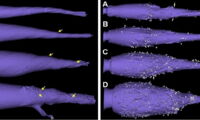
Lead in hunting bullets is dispensable – study proves suitability of alternatives
A new study concerning terminal ballistics of lead-containing and lead-free bullets shows that both materials are equally suitable for hunting in accordance with animal welfare. Lead-free bullets even leave smaller fragment clouds than leaded ones.
Read more … Lead in hunting bullets is dispensable – study proves suitability of alternatives
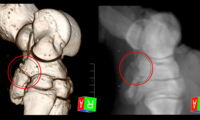
Synchronised imaging techniques - one more chance for rhinoceroses
A new imaging strategy of synchronising computed tomography with digital radiography helps to diagnose and initiate appropriate treatment of foot diseases in mega-vertebrates.
Read more … Synchronised imaging techniques - one more chance for rhinoceroses
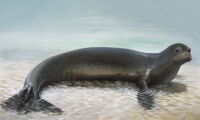
Leibniz, Smithsonian, and Fordham University Scientists Use Extinct Species to Reclassify the World’s Remaining Two Species of Monk Seal
The recently extinct Caribbean monk seal (Monachus tropicalis) was one of three species of monk seal in the world. Its relationship to the Mediterranean and Hawaiian monk seals, both living but endangered, has never been fully understood. Through DNA analysis and skull comparisons, however, Leibniz scientists and colleagues have now clarified the Caribbean species’ place on the seal family tree and created a completely new genus. This is the first time in more than 140 years that a new genus has been recognized amongst modern pinnipeds (seals, sea lions, and walruses). The team’s findings are published in the scientific journal ZooKeys, May 14.

How the koala retrovirus genome evolved
Retroviruses invaded the genome of koalas with strongly pathological effects: the viruses weaken the immune defense and threaten the viability of the already reduced koala population. An international team of scientists from Europe and North America now applied the technique of hybridisation capture to analyse the entire genome of koala retroviruses and used museum samples to monitor its variation across 130 years. The findings were just published in the scientific online-journal PLOS ONE.
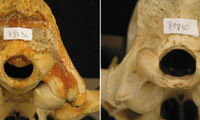
Skull malformations in lions: keeping up the pressure
An international team of researchers led by scientists from the Hebrew University of Jerusalem and the Leibniz Institute for Zoo and Wildlife Research (IZW) Berlin examined the incidence of skull malformations in lions, a problem known to be responsible for causing neurological diseases and increased mortality. Their results suggest that the occurrence is a consequence of a combination of environmental and genetic factors. These findings were published in the scientific journal PLOS ONE.
Read more … Skull malformations in lions: keeping up the pressure
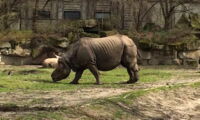
Indian rhinoceroses: Reproductive tract tumours reduce female infertility in early stages
Reproduction of the Indian rhinoceros faces greater difficulties than was previously recognised. Researchers from the German Leibniz Institute for Zoo and Wildlife Research Berlin (IZW) together with American colleagues discovered that benign vaginal and cervical tumours cause infertility even in young females. This substantially affects breeding success in zoological gardens.

The Leibniz Institute for Zoo and Wildlife Research (IZW) was positively evaluated
The Senate of the Leibniz Association has published the results of the external scientific evaluation of the Leibniz Institute for Zoo and Wildlife Research (IZW), Berlin, Germany. It commends the institute for its excellent work and recommends that the government should fund the institute for another seven years.
Read more … The Leibniz Institute for Zoo and Wildlife Research (IZW) was positively evaluated
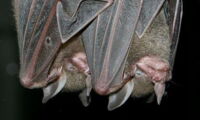
Light pollution impairs rainforest regeneration
Increasing light pollution in tropical habitats could be hampering regeneration of rainforests because of its impact on nocturnal seed-dispersers.

